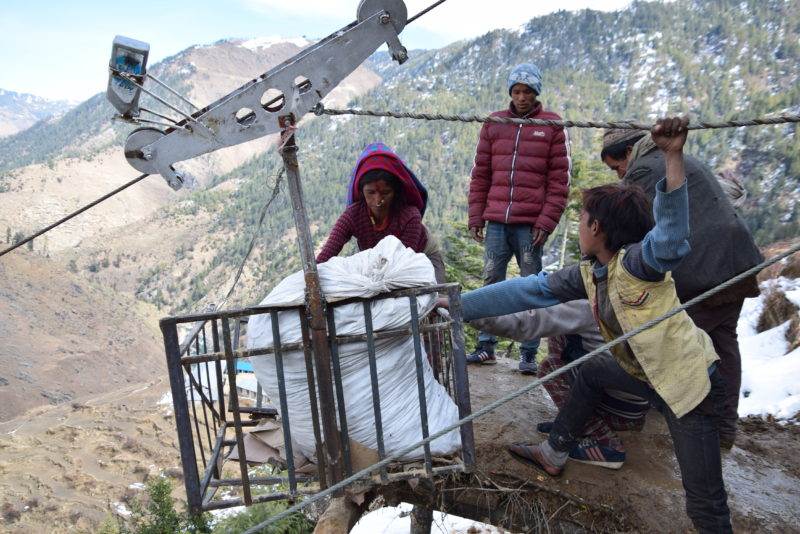
Farming is tough in Nepal – made tougher by climate change
In the far west of Nepal many farmers are women, working in the remote hills and mountains of the Himalayas, where unpredictable floods and droughts wipe out their crops and income. However, an ingenious combination of small things can make a big difference – helping farmers Turn the Tables on Climate Change, and lighten their workload.
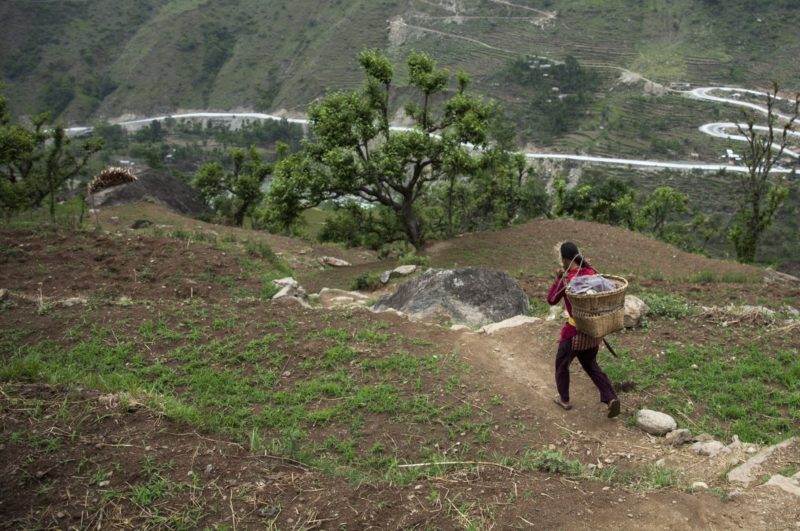
A plan to overcome climate change and the tough terrain
The plan starts with seeds, better suited to the new weather patterns. Add solar-powered irrigation and the seeds can grow. Training in improved farming techniques comes next, resulting in bigger harvests. Bigger harvest mean there is enough to feed the whole family and to sell what’s left over for vital income. But getting produce to market is no easy feat. Carrying crops up and downhill, on treacherous mountain paths prone to landslides, is time-consuming and physically tough, especially for women like Radhika, who works as both a farmer and a tailor yet is unable to earn a living despite her labour. Making it easier and safer to get to market is one important part of the solution.
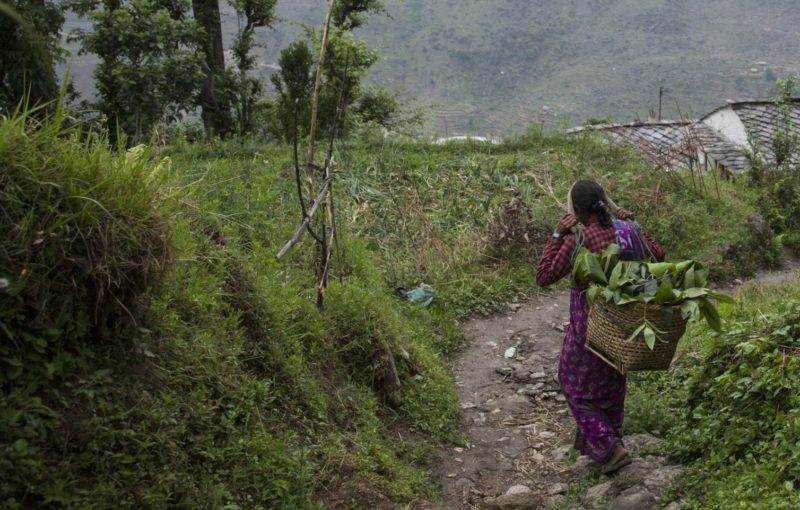
As a farmer, we have to go through all these problems. We put so much effort and time from planting a seed to harvesting but the return we get is very less in terms of our effort.Radhika Pariyar, a farmer and tailor in the Shantinagar Municipality
Defying gravity to overcome the mountains
If you can’t move the mountain– why not take advantage of it? Gravity-defying vegetable cable cars are an innovative system that allow goods to be transported up and down steep mountainsides in a matter of minutes, rather than hours on foot. This means that farmers can get their produce to market quickly and easily, while reducing their workload and gaining back hours of time they could use for new income generating opportunities and to spend with their family.
To support the solution, we will also help farming communities access IT-based market information and services, such as local commodity prices, so they know the right times to take the right produce to the right markets. This knowledge can help farmers get the most from their crops, grow their business and set money aside for important things – like their children’s education.
We now are starting to grow more vegetables – bitter gourdes, pumpkins and tomatoes so we can eat more variety. I believe my daughter will have a healthier future.Suchana Mijar, Mana resident and new mother
An ingeniously simple system
Gravity powered cable cars are ideally suited to the challenging topography of Nepal. The system consists of two baskets, rolling over two separate steel wire ropes suspended between two stations.
By using the weight of the cargo at the upper station, the cable cars are able to generate energy through their pulley systems, using a controlled freefall mechanism in order to move. As one heavier set of cargo falls (usually consisting of crops), the other is lifted uphill (usually household goods). This allows vital crops to be easily transported from the top of the mountain to the bottom – and vice versa!
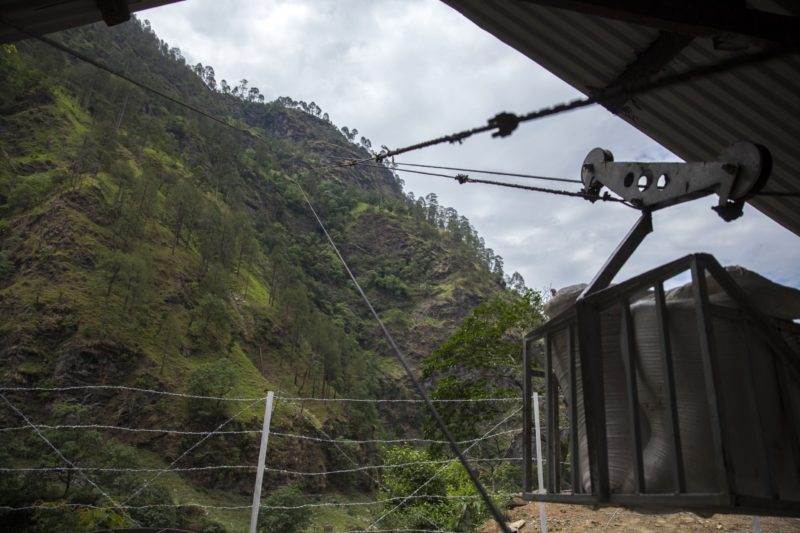
Good for people and for the planet
These brilliant cable cars are cheap to build, easy-to-maintain and affordable to run. And they are environmentally friendly – operating without the need for an external power source (so no fossil fuels), and building them causes very little disturbance to the surrounding landscape.
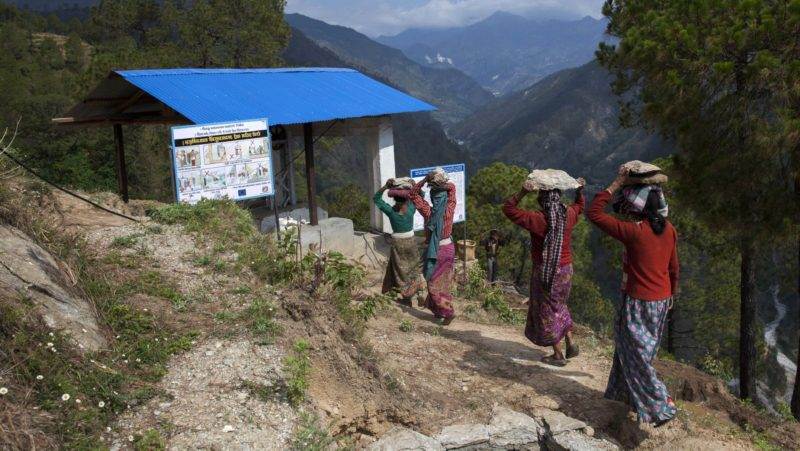
I was very happy when I saw the ropeway working because now, we won’t ever need to carry heavy loads to and from the market again. Just thinking about the past year makes me really appreciate the difference.Suchana Mijar
Here’s proof of what’s possible
These cable cars may look simple – but they can make incredible things happen! They’re just one part of the transformative plan, perfected in partnership with other farming communities in Bajura, Nepal who we’ve already worked with. A combination of new farming techniques and vegetable cable cars have opened up some amazing new opportunities for farmers like Suchana, and are helping her and her family to flourish.
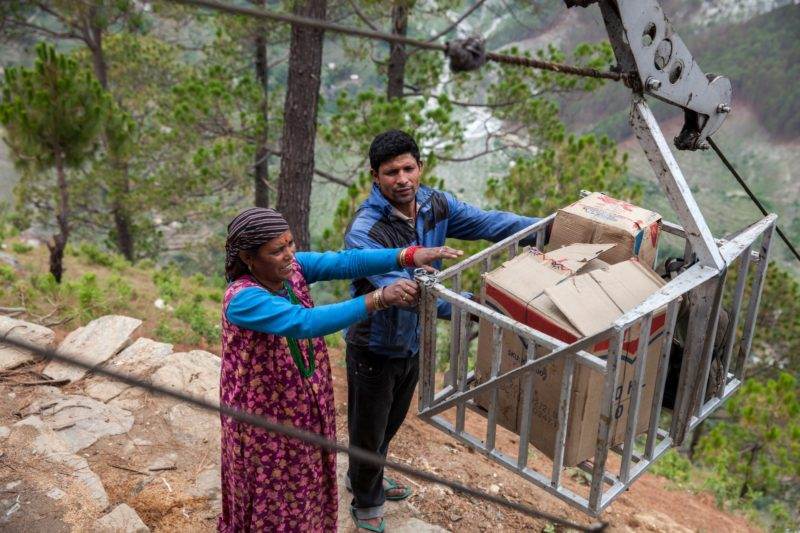
People’s lives have changed for the better
A once-precarious and backbreaking task, is now simple and time-effective. Farmers like Suchana can now start selling crops without the fear of making a perilous journey and shop owners like Kamala are able to supply enough goods to meet the needs of their communities. The market is now more accessible than ever, there is more time to spend with family and there is a growing sense of hope, joy and excitement for the future!
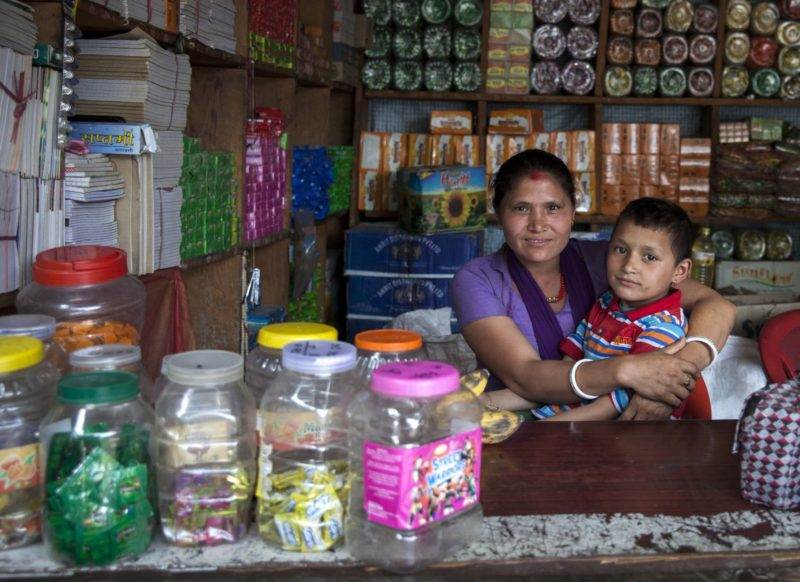
Now we can transport anything along the cable cars. The path is clear. People are able to call for meat for the dinner and easily order large amounts of rice and other food.Kamala Thapa, shop owner and resident of Mana
A long-term solution for the future
Communities have really embraced these cable cars, with community members going on to become cable car operators – setting up user committees, manging the cable car’s system and playing an important part in the ongoing success of the solution.
Farmers pay NRs 20 (15 pence) for every 10 kilograms of goods transported and the money collected is then used to pay for maintenance and the cable car operators’ salary. These amazing cable cars are also built to last through the challenges that climate change present, as they’re hurricane and earthquake resistant up to 7 on the Richter scale and designed so that flood water will flow around the ropeway stations. This means these brilliantly simple cable cars will keep making brilliant things happen for farmers in Nepal long into the future.
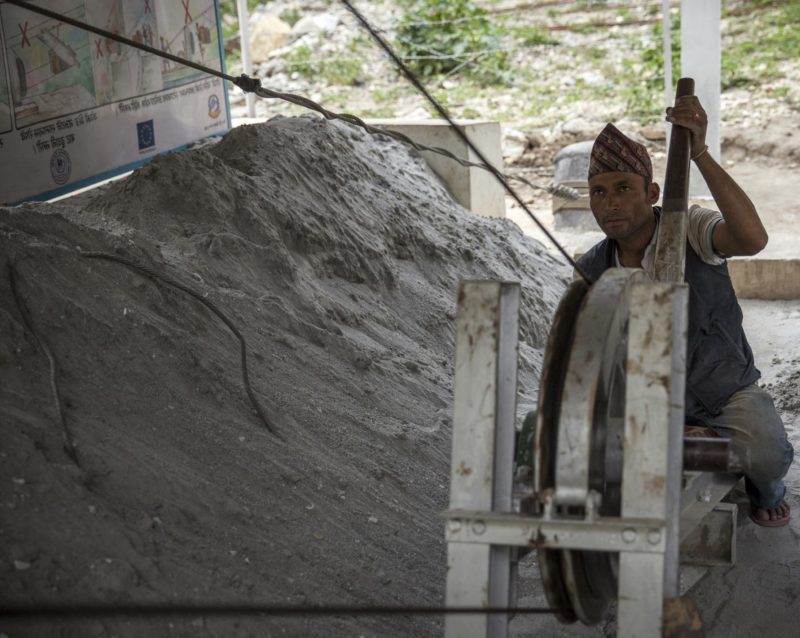
This ropeway is a sign of development. It has helped the people of this community. The cable cars have made it easier to bring the produce from the upper part of Mana village and has encouraged the residents there to produce crops at a commercial level.Prem Saud, cable car operator and chairperson of the users’ committee at Badimalika Municipality
We believe that, through a combination of small solutions, big change can happen. And you can help make that possible! With your support more farmers in Nepal can adapt and succeed.